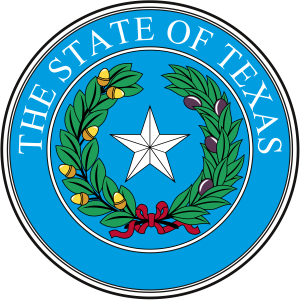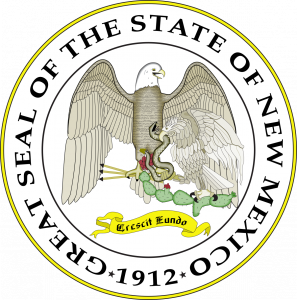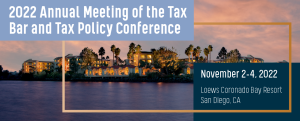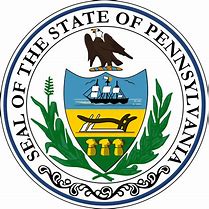In a much-anticipated decision concerning the situsing of receipts from intangibles for Ohio commercial activity tax (CAT) purposes, the Ohio Supreme Court rejected the Ohio Department of Taxation’s attempt to situs NASCAR Holdings, Inc.’s broadcast revenue, media revenue, licensing fees, and sponsorship fees to Ohio. The court’s opinion in NASCAR Holdings, Inc. v. McClain, Slip Op. No. 2022-Ohio-4131 (Nov. 22, 2022), confirms that under Ohio law receipts based on the right to use intellectual property may be sitused to Ohio only if the receipts, i.e., the underlying payments, are tied to a specific right to use the property in Ohio. Continue Reading ›
attempt to situs NASCAR Holdings, Inc.’s broadcast revenue, media revenue, licensing fees, and sponsorship fees to Ohio. The court’s opinion in NASCAR Holdings, Inc. v. McClain, Slip Op. No. 2022-Ohio-4131 (Nov. 22, 2022), confirms that under Ohio law receipts based on the right to use intellectual property may be sitused to Ohio only if the receipts, i.e., the underlying payments, are tied to a specific right to use the property in Ohio. Continue Reading ›
Articles Posted in States
Texas Court of Appeals Confirms Cost-of-Performance Method Is Proper to Source Service Receipts
The Texas Court of Appeals agreed with Sirius XM Radio Inc.’s (Sirius XM) cost-of-performance (COP) method to determine the fair value of Sirius XM’s services performed in Texas. Continue Reading ›
(COP) method to determine the fair value of Sirius XM’s services performed in Texas. Continue Reading ›
Three Strikes, You’re Out! New York Has Another Miss in Sales Tax Case Against a Service Provider Under the “Primary Function” Test

An administrative law judge (ALJ) in the New York State Division of Tax Appeals cancelled the New York State Division of Taxation’s notice of determination asserting sales tax on petitioner’s verification services. The October 6, 2022 determination in Matter of Employment Screening Services, LLC, confirms that petitioner’s services are properly characterized as nontaxable information services because this verification report is tailored and customized based upon the specific applicant.
“Primary Function” Test Propels Yet Another Service Provider to Victory in New York Sales Tax Case

An administrative law judge in the New York State Division of Tax Appeals rejected the state’s position that a taxpayer providing a web-based service which allowed clients to identify effective and ineffective messaging through information, analysis, and reports was selling taxable software. Following the rationale applied in a series of recent sales tax cases, including Matter of 1Life Healthcare, Inc., DTA No. 829434, and Matter of Breakdown Services, Ltd., DTA No. 829396, the judge concluded in her September 29, 2022 determination that the taxpayer’s service was nontaxable because its primary function was an information service that was personal or individual in nature.
The California Franchise Tax Board Fails to Follow the Order of Its Market-Based Sourcing Cascading Rules

In the Appeal of Sheward, 2022-OTA-228P (May 25, 2022), the California Office of Tax Appeals (OTA) held the California Franchise Tax Board (FTB) failed to follow its own market-based sourcing apportionment regulation by prematurely using reasonable approximation to source the income of a multistate unitary business. During the tax year 2017, the taxpayer operated a business providing in-person services as a horse racetrack judge in California and Minnesota but failed to file a California return. Related to such services, the taxpayer received Form 1099s from the State of California, the State of Minnesota, and Minnesota Harness Racing, Inc.
Maryland Court Invalidates Maryland’s First-of-Its-Kind Digital Ad Tax
A Maryland state court struck down the state’s Digital Advertising Gross Revenues Tax (“Digital Ad Tax”) as invalid under both the federal Internet Tax Freedom Act (“ITFA”) and U.S. Constitution. 
Enacted February 12, 2021, Maryland’s Digital Ad Tax by its terms applies to any person with at least $1 million of annual gross revenues from digital advertising services in Maryland and global annual gross revenues of at least $100 million. The tax applies broadly to “digital advertising services,” including banner advertisements, search engine advertisements, interstitial advertisements, and other comparable advertising services accessed on a digital interface in Maryland. The Digital Ad Tax is imposed on revenue derived from digital advertising services in Maryland and applies at rates increasing from 2.5% to 10% depending on the taxpayer’s global annual gross revenue, regardless of where the revenue is earned. Continue Reading ›
Everything in its Place: New Mexico Hearing Officer Finds Markup for Out-of-State Service is Exempt, While Reimbursements for New Mexico Employee Payroll are Taxable

A New Mexico Hearing Officer found that Gross Receipts Tax does not apply to a taxpayer’s markup for services performed outside New Mexico, but the taxpayer’s reimbursements for payroll to New Mexico employees are taxable New Mexico receipts. In Protest of Talbridge, the taxpayer was a Texas employment agency with no offices in New Mexico that was the legal employer of individuals providing services to a client in New Mexico. The client recruited and interviewed candidates and, if hired, provided the employee a list from which to select their desired payroll provider. If the employee chose the taxpayer, the taxpayer charged the client the payroll expense plus a percentage (“markup”) as compensation for its services.
2022 Annual Meeting of the California Tax Bar and California Tax Policy Conference
Pillsbury SALT partner Carley Roberts will be presenting at the Annual Meeting of the California Tax Bar and California Tax Policy Conference on November 3.
Industry Trade Association Sues California Franchise Tax Board Over “Radical” New Interpretation on Scope of Public Law 86-272 Post-Wayfair
The American Catalog Mailers Association (ACMA), which describes itself as the nation’s leading industry trade association advocating for catalog, online, direct mail, and other remote-selling merchants and their suppliers, has filed suit against the California Franchise Tax Board (FTB) in the San Francisco County Superior Court of California.

ACMA’s complaint seeks a judicial declaration that the FTB’s 2022 publicly-issued guidance related to Public Law 86-272 (PL 86-272) – specifically, Technical Advice Memorandum (TAM) 2022-01 and FTB Publication 1050 – are invalid because (1) they contradict PL 86-272 and the U.S. Constitution; and (2) the FTB did not properly follow the California Administrative Procedure Act’s required rulemaking process before publishing such guidance. In the alternative, ACMA seeks a judicial declaration that the FTB’s new guidance applies on a prospective basis only. ACMA also seeks attorney’s fees and costs of suit for bringing the action to enforce an important right affecting the public interest.
Pennsylvania Legislation Provides Updates to Corporate Income Tax Law
The Pennsylvania Governor signed H.B. 1342 to enact changes to the state’s corporate income tax.[1]  The legislation modifies the corporate income tax in three ways: (1) adopts a bright-line economic nexus standard; (2) adopts market sourcing for receipts from intangibles; and (3) reduces the corporate tax rate and gradually continues to reduce the rate over the next eight years. Continue Reading ›
The legislation modifies the corporate income tax in three ways: (1) adopts a bright-line economic nexus standard; (2) adopts market sourcing for receipts from intangibles; and (3) reduces the corporate tax rate and gradually continues to reduce the rate over the next eight years. Continue Reading ›
 SeeSALT Blog
SeeSALT Blog

